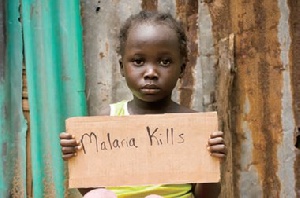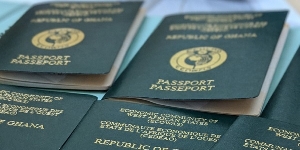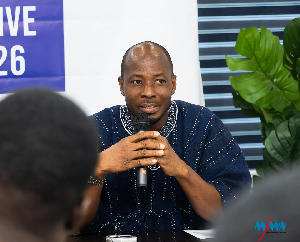Some stakeholders have called for a separate account to keep the malaria control component of the District Assembly Common Fund (DACF) to prevent diversion.
This follows a recent revelation that most district assemblies in the Upper East Region have not been able to account for the malaria cash in their care.
The stakeholders, made up of district health directors, heads of decentralised departments of selected assemblies, media practitioners, religious and traditional rulers, and selected security agencies, unanimously agreed that if this is done and effectively monitored, the assemblies would be compelled to transfer the moneys allocated for malaria control into that account and would be available to the Ghana Health Service to use for that purpose.
Communiqués issued at the end of the separate meetings in the Bongo, Bolgatanga, Kessena-Nankana Municipality and West, Talensi and the Nabdam Districts, formed part of the Advocacy for Resources for Malaria Stoppage Initiative (ARMS) project. The project is being implemented by the Institute for Social Research and Development (ISRAD), with financial support from UKAID.
Even though a few district directors of health in the Upper East Region are aware of this component in the DACF for malaria control, they are not able to access it because their assemblies are not willing to release the money. This region is counted among regions in the country with a high number of malaria cases.
The ARMS project is a one year project meant to sensitise all stakeholders and community leaders on the use of the malaria control fund and also get them to understand why there is the need to start mobilising local resources to fund malaria control.
Per the 2016 guideline use of DACF, 0.5 percent of an assembly's share of the fund should be allocated to the district health directorates to support district response initiatives for the prevention of malaria.
The Upper East Coordinator for ISRAD, Abdul-Razak Issah, told stakeholders that malaria continues to be the leading cause of sickness in the country, yet policymakers seem not to pay much attention to malaria prevention.
He reiterated that donor support towards malaria prevention was fast dwindling and if government's contribution is not effectively monitored and utilised for the intended purpose of fighting malaria, then the country stands the risk of recording high cases of morbidity and mortality when the donors pull out completely.
“The goal of the Advocacy for Resources for Malaria Stoppage Initiative project is to create awareness of the malaria control fund and why it should be released. It is also to create awareness on testing for malaria before treatment, and finally, to get government to be serious with the funding of malaria control activities in the country,” Mr Issah disclosed.
Health News of Tuesday, 1 November 2016
Source: Daily Guide













